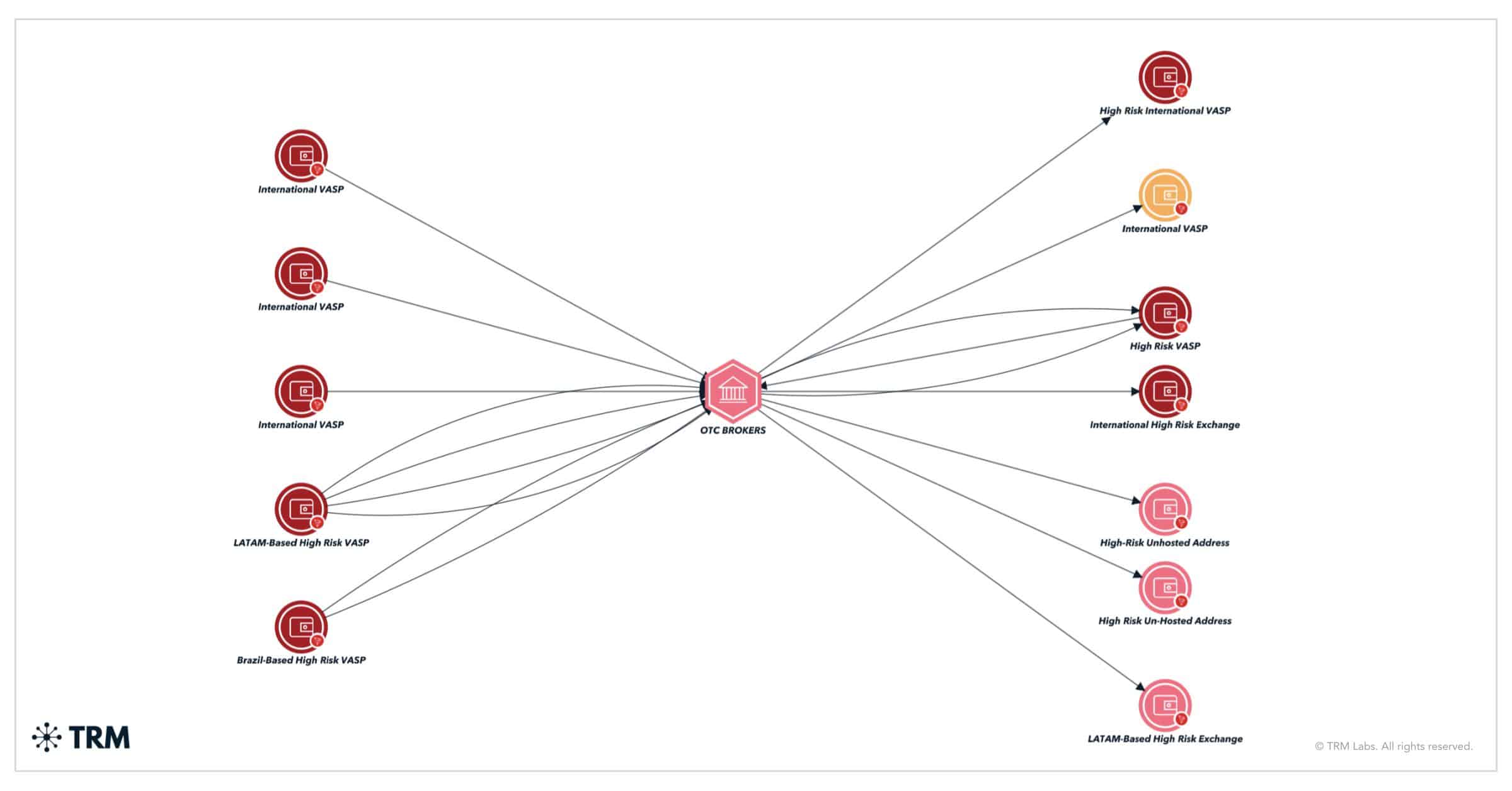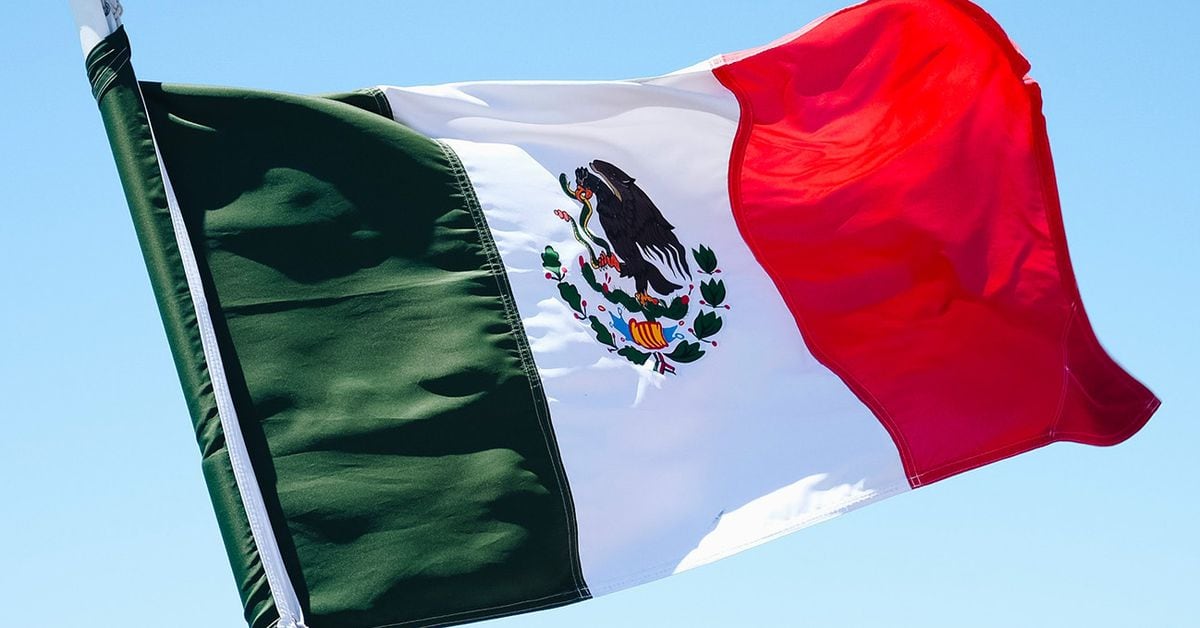brazil
Brazil police bust $9.7b crypto laundering scheme
Published
3 months agoon
By
admin
Brazilian authorities have uncovered a $9.7 billion crypto laundering scheme, arresting suspects in multiple cities as part of a major financial crime investigation.
Brazilian authorities have clamped down on a multi-billion-dollar money laundering scheme involving cryptocurrencies across multiple cities, including São Paulo, Fortaleza, and Brasília.
As part of the so-called “Operation Niflheim,” the Federal Revenue and Federal Police executed 23 search and eight arrest warrants, targeting a network suspected of using crypto to launder funds from criminal activities, such as drug trafficking and smuggling, blockchain forensic firm TRM Labs revealed in a Sept. 20 blog post.
The investigation centers on two companies in Caxias do Sul that allegedly moved R$ 19 billion (around $3.6 billion) and R$ 15 billion ($2.8 billion) between August 2019 and May.

The scheme involved four layers, including tax evaders, shell companies, and firms facilitating foreign exchange and crypto transactions. Laundered funds were then transferred abroad to countries like the U.S., Hong Kong, and the UAE.
“Authorities discovered that over half of the deposits linked to the main suspects came from individuals with criminal backgrounds, pointing to widespread use of cryptocurrencies to facilitate illicit activities.”
TRM Labs
A federal court froze $1.58 billion in funds held in bank accounts and cryptocurrency exchanges, though the report did not specify which platforms were involved. In total, the Federal Police reported that over $9.7 billion had been laundered since the investigation began in 2021, underscoring the significant role cryptocurrencies play in facilitating financial crimes in Brazil.
Source link
You may like


Experts say these 3 altcoins will rally 3,000% soon, and XRP isn’t one of them


Robert Kiyosaki Hints At Economic Depression Ahead, What It Means For BTC?


BNB Steadies Above Support: Will Bullish Momentum Return?


Metaplanet makes largest Bitcoin bet, acquires nearly 620 BTC


Tron’s Justin Sun Offloads 50% ETH Holdings, Ethereum Price Crash Imminent?


Investors bet on this $0.0013 token destined to leave Cardano and Shiba Inu behind
Argentina
How a $115M Crypto Fund With Big Ambitions Plans to Invest In Latin America
Published
1 month agoon
November 13, 2024By
admin

One of the biggest roadblocks in converting Latin American investors to concept of crypto, is education about the sector. Cryptocurrencies, which don’t have a physical existence like gold or cash, can be a difficult concept for investors to grasp. “Latin American investors are still very traditional,” she added. “They tell me they only invest in things that they can stand on, or things they can touch. We’re trying to change that mentality… we need to prove to them that these technologies actually work.”
Source link
brazil
Crypto Town Square X Is Reportedly Now Banned in Brazil Following Judge’s Ruling
Published
4 months agoon
September 1, 2024By
admin

For cryptocurrencies, the decision cuts Brazilian users off from a platform that has for years served as the industry’s town square. Crypto-supporter Jack Dorsey, who co-founded X when it was called Twitter, has supported two alternative platforms: Nostr and Bluesky, though he’s distanced himself from the latter.
Source link
Binance
Binance to Pay $1.7M to Brazilian Securities Commission to End Probe Into Unauthorized Derivatives Offering
Published
4 months agoon
August 14, 2024By
admin

Binance, the world’s largest cryptocurrency exchange, will pay 9.6 million reais ($1.76 million) to the Brazilian Securities and Exchange Commission (CVM) as a settlement for offering derivatives trading services in the country without receiving the corresponding license.
Source link

Experts say these 3 altcoins will rally 3,000% soon, and XRP isn’t one of them

Robert Kiyosaki Hints At Economic Depression Ahead, What It Means For BTC?

BNB Steadies Above Support: Will Bullish Momentum Return?

Metaplanet makes largest Bitcoin bet, acquires nearly 620 BTC

Tron’s Justin Sun Offloads 50% ETH Holdings, Ethereum Price Crash Imminent?

Investors bet on this $0.0013 token destined to leave Cardano and Shiba Inu behind

End of Altcoin Season? Glassnode Co-Founders Warn Alts in Danger of Lagging Behind After Last Week’s Correction

Can Pi Network Price Triple Before 2024 Ends?

XRP’s $5, $10 goals are trending, but this altcoin with 7,400% potential takes the spotlight

CryptoQuant Hails Binance Reserve Amid High Leverage Trading

Trump Picks Bo Hines to Lead Presidential Crypto Council

The introduction of Hydra could see Cardano surpass Ethereum with 100,000 TPS

Top 4 Altcoins to Hold Before 2025 Alt Season

DeFi Protocol Usual’s Surge Catapults Hashnote’s Tokenized Treasury Over BlackRock’s BUIDL

DOGE & SHIB holders embrace Lightchain AI for its growth and unique sports-crypto vision
182267361726451435

Why Did Trump Change His Mind on Bitcoin?

Top Crypto News Headlines of The Week

New U.S. president must bring clarity to crypto regulation, analyst says

Will XRP Price Defend $0.5 Support If SEC Decides to Appeal?

Bitcoin Open-Source Development Takes The Stage In Nashville

Ethereum, Solana touch key levels as Bitcoin spikes

Bitcoin 20% Surge In 3 Weeks Teases Record-Breaking Potential

Ethereum Crash A Buying Opportunity? This Whale Thinks So

Shiba Inu Price Slips 4% as 3500% Burn Rate Surge Fails to Halt Correction

Washington financial watchdog warns of scam involving fake crypto ‘professors’

‘Hamster Kombat’ Airdrop Delayed as Pre-Market Trading for Telegram Game Expands

Citigroup Executive Steps Down To Explore Crypto
Mostbet Güvenilir Mi – Casino Bonus 2024

NoOnes Bitcoin Philosophy: Everyone Eats
Trending

 3 months ago
3 months ago182267361726451435

 Donald Trump5 months ago
Donald Trump5 months agoWhy Did Trump Change His Mind on Bitcoin?

 24/7 Cryptocurrency News4 months ago
24/7 Cryptocurrency News4 months agoTop Crypto News Headlines of The Week

 News4 months ago
News4 months agoNew U.S. president must bring clarity to crypto regulation, analyst says

 Price analysis4 months ago
Price analysis4 months agoWill XRP Price Defend $0.5 Support If SEC Decides to Appeal?

 Opinion5 months ago
Opinion5 months agoBitcoin Open-Source Development Takes The Stage In Nashville

 Bitcoin5 months ago
Bitcoin5 months agoEthereum, Solana touch key levels as Bitcoin spikes

 Bitcoin5 months ago
Bitcoin5 months agoBitcoin 20% Surge In 3 Weeks Teases Record-Breaking Potential


